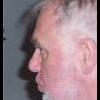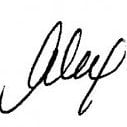Search the Community
Showing results for 'revision bypass'.
Found 17,501 results
-

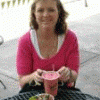
Question about chewing food, not drinking during meals and stuff like that!
Cocoabean replied to PalmBayTish72's topic in PRE-Operation Weight Loss Surgery Q&A
I wonder if part of the chew, chew, chew doesn't go back to gastric bypass patients. The new pouch created during that procedure doesn't grind food, thus it must be completely masticated to continue on it's way through the digestive process. However, I have swallowed half chewed items and lived to regret it. But I also don't chew my food to liquid. It is a fine art, and one that you will master with time. I have also had experiences when I swallowed something not fully chewed and thought I was done for, only to find it was fine. My surgeon doesn't have an issue with my having some liquids with food. I have also not noticed a difference in my satiety levels if I sip some liquids or not with meals. But I don't drink massive amounts, just a few sips to moisten my mouth. My surgeon does have an issue with drinking liquids with calories rather than eating the calories. Your surgeon may very well have different insrtructions and your mileage may vary. I confess that I have a little bit of milk with my dinner. It is a habit I can't seem to break, and my surgeon knows about it. We agreed to disagree. It is the only calorie containing liquid I consume, and about 8 oz a day. I can live with that. My surgeon doesn't even want me using Protein shakes. He wants all my calories to come in solid form. Except after fills, which at this point, happen rarely. You will find what works for you. This is what works for me. Denise -
Picked up a copy of Weight Loss Surgery Cookbook for Dummies at borders books for $19.95. It's great and answers a lot of questions in plain language that most of us have and some we hadn't thought about. It covers LapBand and Bypass issues and clearly keeps issues with each seperate. There are Nook and Kindle versions too at about $10.00. I think its worth having on the bookshelf. Here's a cheat sheet link to whats covered in the book in more detail: http://www.dummies.com/how-to/content/weight-loss-surgery-cookbook-for-dummies-cheat-she.html
-

U.K. potential sleevers! Stay in the U.K
JT2002TJ replied to Bishbosh's topic in PRE-Operation Weight Loss Surgery Q&A
I'm so sorry. Good luck, I can't imagine having to have 2 surgeries so close together. Will this revision be covered under NHS, without a major wait? -
Revisions of all kinds! Please share your experiences!
- 6 replies
-
- overstitch
- band to sleeve
- (and 6 more)
-


Lapband slipped? Eroded?? Help needed!
bakerboy replied to bakerboy's topic in LAP-BAND Surgery Forums
Barrium swallow shows slight esophagus dilitation except for that no band erosion or any band slippage..no liquid now.. Syspotoms have improved .. Gained a kilo or 2 because of water and food entering the body normally.. I dont know if i should get sleeve or bypass after this and get band removed. -
An interesting summary of the 'state of research'. I normally post a link, but that does not work. So here is the full thread. Full disclosure, I drink coffee, and my program does NOT like that. I really DO follow my program in most things, but coffee is the ONLY drug I've got left... _____ Dear Ontherighttrack, You’ve asked a great question. What is the effect of caffeine on sleeve gastrectomy? To answer your question, I did a search of the medical literature on PubMed, the index for the National Medical Library. I couldn’t find any articles that address your question directly. Incidentally, there were no articles that addressed the effect of caffeine on gastric bypass either. Next I searched for both sleeve gastrectomy and gastric bypass and coffee. Again the medical library search engine did not return any articles. Thus, so far there have been no studies performed on sleeve gastrectomy patients or gastric bypass patients that would permit or discourage caffeine or coffee use. Most surgeons recommend that gastric bypass and sleeve gastrectomy patients avoid caffeine or coffee. These recommendations stem from research work that has been done on non-weight loss surgery patients. Before looking into this further let’s distinguish between caffeine and coffee. Caffeine is an alkaloid chemical that has stimulant effects on the central nervous system as well as other parts of the body. Caffeine is a moderate stimulant of gastric acid production. In some studies it has been shown to decrease lower esophageal sphincter pressure and thus potentially promote reflux. In other studies, the effect on sphincter pressure is not so clear. Coffee is brewed from the coffea plant. Coffee contains numerous biologically active chemicals including caffeine. The degree to which these compounds are present in a given cup of coffee depends on the specific species of coffee plant as well as the roasting and processing methods used to bring the coffee to market (see article by Van Deventer below). Even the type of filter used in a coffee maker will change the types of plant oils that remain in the brew. Gastroesophageal reflux (GERD or GORD) is reflux of stomach juices into the esophagus. GERD can cause heartburn. There are several full medical articles attached at the bottom of this reply. Please download these for further information. Coffee/caffeine and gastric acid stimulation There is general agreement that caffeine and coffee are two factors that stimulate stomach acid production. According to Cohen and Booth (1975) “Decaffeinated coffee gave a maximal acid response of 16.5 per hour (mean)which was similar to that of regular coffee, 20.9 mEq per hour, both values being higher than that of caffeine, 8.4, on a cup-equivalent basis.” Thus there are chemicals in coffee aside from caffeine that have potent acid stimulatory effects. In this study, decaffeination did not reduce acid stimulation. Further information about decaffeinated coffee was put forth by Feldmen et. Al (1981): “At equal concentrations, decaffeinated coffee was a more potent stimulant of acid secretion and of gastrin [an acid stimulating gut hormone] release than peptone [a Protein meal acid stimulus]. The ingredient(s) of decaffeinated coffee that accounts for its high potency in stimulating acid secretion and gastrin release has not been identified.” Coffee, caffeine, and esophageal reflux There is considerable controversy in the medical literature as to the effects of coffee and caffeine on esophageal reflux. Here are the conclusions to three articles on the subject. The full article summaries are added below. Wendl (1994) writes, “Coffee, in contrast to tea, increases gastro-oesophageal reflux, an effect that is less pronounced after decaffeination. Caffeine does not seem to be responsible for gastro-oesophageal reflux which must be attributed to other components of coffee.” Boekema (1999) and associates came to an opposite conclusion: “Coffee has no important effect on gastro-oesophageal acid reflux in GORD [GERD] patients, and no effect at all in healthy subjects.” Zheng (2007) conludes, “In conclusion, this large monozygotic co-twin study provides evidence that BMI, tobacco smoking and physical activity at work facilitate the development of GER, while physical activity at leisure time appears to be a protective factor. The association between BMI and frequent GER symptoms among men may be attenuated by genetic factors. In addition, heavy coffee intake may be a protective factor of GER in men and lower education may be a potential risk factor in women.” CONCLUSIONS Caffeine, and more so, coffee and decaf coffee stimulate gastric acid production. Caffeine and coffee may promote gastroesophageal reflux. Caffeine and coffee are just two of many factors that promote gastric acid production and gastroesophageal reflux. Clinical Implications: For sleeve patients who suffer from gastroesophageal reflux, it is best to avoid caffeine and coffee. For sleeve patients who do not have reflux, I do not see any reason not to enjoy coffee or use caffeine products in moderation. For gastric bypass patients, most surgeons recommend against caffeine and coffee because the acid stimulation that occurs may contribute to the development of anastomotic ulcers. Since there are many other factors involved in the development of these ulcers (alcohol, cigarette smoking and nicotine, and NSAID drugs), it is impossible to know how important the role of coffee and caffeine is. Most surgeons are thus saying avoid coffee and be “better safe than sorry.” REFERENCES Good Water, sports drink, and sports drink with caffeine. drinks for gastric pH and reflux during the preexercise, the cycling, and the postexercise episode, respectively. Gastric emptying, orocecal transit time, and intestinal permeability showed no significant differences between the three trials. However, glucose absorption was significantly increased in the CES + caffeine trial compared with the CES trial (P = 0.017). No significant differences in gastroesophageal reflux, gastric pH, or gastrointestinal transit could be observed between the CES, the CES + caffeine, and the water trials. However, intestinal glucose uptake was increased in the CES + caffeine trial. ___________________________________________________________________ lunch, 1 h after dinner and after an overnight fast Reflux and oesophageal motility parameters were assessed for the first hour after each coffee or water intake. RESULTS: Coffee had no effect on postprandial acid reflux time or number of reflux episodes, either in GORD patients or in healthy subjects. Coffee increased the percentage acid reflux time only when ingested in the fasting period in the GORD patients (median 2.6, range 0-19.3 versus median 0, range 0-8.3; P = 0.028), but not in the healthy subjects. No effect of coffee on postprandial lower oesophageal sphincter pressure (LOSP), patterns of LOSP associated with reflux episodes or oesophageal contractions was found. CONCLUSION: Coffee has no important effect on gastro-oesophageal acid reflux in GORD patients, and no effect at all in healthy subjects. _______________________________________________________________________ beverages and of their major component, caffeine, have not been quantified. The aim of this study was to evaluate gastro-oesophageal reflux induced by coffee and tea before and after a decaffeination process, and to compare it with water and water-containing caffeine. METHODS: Three-hour ambulatory pH-metry was performed on 16 healthy volunteers, who received 300 ml of (i) regular coffee, decaffeinated coffee or tap water (n = 16), (ii) normal tea, decaffeinated tea, tap water, or coffee adapted to normal tea in caffeine concentration (n = 6), and (iii) caffeine-free and caffeine-containing water (n = 8) together with a standardized breakfast. RESULTS: Regular coffee induced a significant (P < 0.05) gastro-oesophageal reflux compared with tap water and normal tea, which were not different from each other. Decaffeination of coffee significantly (P < 0.05) diminished gastro-oesophageal reflux, whereas decaffeination of tea or addition of caffeine to water had no effect. Coffee adapted to normal tea in caffeine concentration significantly (P < 0.05) increased gastro-oesophageal reflux. CONCLUSIONS: Coffee, in contrast to tea, increases gastro-oesophageal reflux, an effect that is less pronounced after decaffeination. Caffeine does not seem to be responsible for gastro-oesophageal reflux which must be attributed to other components of coffee. Angeles, California. Abstract This study tested the hypothesis that differences in the processing of raw coffee Beans can account for some of the variability in gastric effects of coffee drinking. Coffees were selected to represent several ways that green coffee beans are treated, ie, processing variables. These included instant and ground coffee processing, decaffeination method (ethyl acetate or methylene chloride extraction), instant coffee processing temperature (112 degrees F or 300 degrees F), and steam treatment. Lower esophageal sphincter pressure, acid secretion, and blood gastrin was measured in eight human subjects after they consumed each of the different coffees. Consumption of coffee was followed by a sustained decrease in lower esophageal sphincter pressure (P less than 0.05) except for three of the four coffees treated with ethyl acetate regardless of whether or not they contained caffeine. Caffeinated ground coffee stimulated more acid secretion that did decaf ground coffees (P less than 0.05), but not more than a steam-treated caffeinated coffee. Instant coffees did not differ in acid-stimulating ability. Ground caffeinated coffee resulted in higher blood gastrin levels than other ground coffees (P less than 0.05). Freeze-dried instant coffee also tended toward higher gastrin stimulation. It is concluded that some of the observed variability in gastric response to coffee consumption can be traced to differences in how green coffee beans are processed. __________________________________________________________________________________ JAMA. 1981 Jul 17;246(3):248-50. Gastric acid and gastrin response to decaffeinated coffee and a peptone meal. Feldman EJ, Isenberg JI, Grossman MI. Abstract We compared five graded doses of decaffeinated coffee and a widely used protein test meal (Bacto-peptone) as stimulants of acid secretion (intragastric titration) and gastrin release (radioimmunoassay) in eight healthy men. In each subject, for both acid and gastrin, the sums of the responses to all five doses were greater to decaffeinated coffee than to peptone. The mean +/- SE peak acid output in millimoles per hour was 18.5 +/- 2.9 to decaffeinated coffee and 14.7 +/- 2.7 to peptone, representing 70% and 55%, respectively, of the peak acid output to pentagastrin. The mean +/- SEM peak increment over basal rate in serum gastrin in picograms per milliliter was 84.8 +/- 4.4 to decaffeinated coffee and 44.8 +/- 2.1 to peptone. At equal concentrations, decaffeinated coffee was a more potent stimulant of acid secretion and of gastrin release than peptone. The ingredient(s) of decaffeinated coffee that accounts for its high potency in stimulating acid secretion and gastrin release has not been identified. ___________________________________________________________________________________ Dis Esophagus. 2006;19(3):183-8. Effect of caffeine on lower esophageal sphincter pressure in Thai healthy volunteers. Lohsiriwat S, Puengna N, Leelakusolvong S. Source Department of Physiology, Faculty of Medicine, Siriraj Hospital, Mahidol University, Bangkok, Thailand. sislr@mahidol.ac.th Abstract Caffeine affects many aspects of body function including the gastrointestinal system. A single-blinded experimental study was performed to evaluate the effect of caffeine on lower esophageal sphincter (LES) and esophageal peristaltic contractions in healthy Thai adults. The volunteers were six men and six women aged 19-31 years. Subjects drank 100 mL of water. Five wet swallows were performed 30 min after the drink. The basal LES pressure was continuously measured using esophageal manometric technique. They then consumed another 100 mL of water containing caffeine at the dose of 3.5 mg/kg body weight. The swallows and basal LES pressure monitoring were repeated. The results showed no change in basal LES pressure after a water drink while caffeine consumption significantly lowered the pressure at 10, 15, 20 and 25 min. The mean amplitude of contractions and peristaltic velocity were decreased at the distal esophagus at 3 and 8 cm above LES. The mean duration of contraction was decreased at the distal part but increased at the more proximal esophagus. The heart rate, systolic and diastolic blood pressures were increased significantly at 10-20 min after caffeine ingestion. This study indicated that caffeine 3.5 mg/kg affected esophageal function, resulting in a decrease in basal LES pressure and distal esophageal contraction, which is known to promote the reflux of gastric contents up into the esophagus. N Engl J Med. 1975 Oct 30;293(18):897-9. Gastric acid secretion and lower-esophageal-sphincter pressure in response to coffee and caffeine. Cohen S, Booth GH Jr. Abstract Caffeine stimulates gastric acid secretion and reduces the competence of the lower esophageal sphincter in man. These effects of caffeine have been used as evidence that regular coffee should not be used by patients with peptic-ulcer disease or gastroesophageal reflux. We compared the dose-response relations of caffeine, regular coffee and decaffeinated coffee for gastric acid secretion and sphincter pressure in normal subjects. Decaffeinated coffee gave a maximal acid response of 16.5 +/- 2.6 mEq per hour (mean +/- S.E.M.), which was similar to that of regular coffee, 20.9 +/- 3.6 mEq per hour, both values being higher than that of caffeine, 8.4 +/- 1.3, on a cup-equivalent basis. Sphincter pressure showed minimal changes in response to caffeine, but was significantly increased by both regular and decaffeinated coffee (P less than 0.05). These data suggest that clinical recommendations based upon the known gastrointestinal effects of caffeine may bear little relation to the actual observed actions of coffee or decaffeinated coffee.
-


Sleeve or lap band?
Lady433516 replied to LaLa Lady's topic in PRE-Operation Weight Loss Surgery Q&A
Jlkhollins, I too am having a band to sleeve revision on Jan 28. Would love to chat with you. -
I did the RNY on Jun but I can eat almost everything even the potato chips. can you eat those things? and what happen to you if you do eat them? how much of food you can tolerate to eat in the same time? actually, I had a gastric banding revision to RNY and it's really new situation for me.
-
If they ignore you and put you off now, they won’t be there for you post op if you have a complication. . I made every excuse for my surgeons failure to return my phone calls or the fact that he was never there and I never could discuss my pain and swallowing issues cause the nurse said I had to talk to him and she couldn’t do anything. It wasn’t until my other dr was angry I was being ignored that I realized how inappropriate it was. And all the very serious complications he didn’t care about have caused damage to my esophagus and sleeve. I now have attempted a revision from sleeve to bypass once which couldn’t be done due to damage at top of my sleeve caused by GERD. so I was referred to a third surgeon to attempt a revision again. I suggest you make it clear that you need to be a priority or find another surgeon who will make you one. I immediately realized how awful the first surgeons office was after getting many additional opinions and no other office treated me like that. Make sure you are confident and comfortable with the person you are letting put a knife to you.
-
Hey Guys, I am getting surgery october 1 and I wanted to ask what are the things you had or wish you had in the hospital or at home right after surgery to make things easier? Thank you in advance.
-


Revision from VSG to RNY with hernia repair
Mo'Nique replied to shriner37's topic in Revision Weight Loss Surgery Forums (NEW!)
Happened to me after VBG I 2004. 12-03-2021 I had a revision to RNY do to complications with Gerd hernias and me closed esophagus. They did not repair hernias. I've lost 40lbs and can barely feel either hernia anymore and can eat without issues! -


Surgeon agrees today to do port revision surgery
Katy517 replied to Katy517's topic in Revision Weight Loss Surgery Forums (NEW!)
My port revision surgery has been approved by insurance and is scheduled for next week. I have to have an EKG and blood work done as well as get a 'readiness for surgery' pronouncement from my PCP. Also have to do a 3-day liquid diet prior to surgery. I have an appointment with the surgeon for the day prior to surgery to find out what my options are for port placement. I'm told that I should be back to work within a few days and that it's a pretty minor outpatient surgery. What I really need is a fill though as I've been stuck at the same weight for weeks now. Not sure when I'll be able to get my first after the revision. Would appreciate comments/advice from anybody who's gone through this previously. -


Surgeon agrees today to do port revision surgery
pickles123 replied to Katy517's topic in Revision Weight Loss Surgery Forums (NEW!)
I am glad the surgery is over for you. I had port revision surgery also. My port had a leak from the start. My doctor was very nice and said I didn't do anything it was just a defective port. (Although he didn't believe me until 7 months later that there was a problem.) I lost that first 50 myself. He did put a 5cc fill in a surgery and said he would do a fill every two weeks. That is the program we are on. I think your doctor is just being a little ornery. But, just my opinion. I just had the regular port put back in. I didn't have any other options for a low profile port. -


Surgeon agrees today to do port revision surgery
Katy517 replied to Katy517's topic in Revision Weight Loss Surgery Forums (NEW!)
Thank you Mimi. I made it through port revision surgery yesterday and other than the discomfort from the incision I'm in pretty good shape. Very gassy, major diarrhea and retaining lots of fluids that I attribute to the procedure. I did find out from the hospital's bariatric coordinator that low profile ports aren't available yet for the 14cc bands that are the hospital's standard for use. I'm anxious for the swelling to go down to see if this makes the difference that I hope. -


Newbie Here Previous Gastric Bypass Patient
goal130 replied to shankaryn's topic in Tell Your Weight Loss Surgery Story
oopsy, I meant when you first got the gastric bypass -


Newbie Here Previous Gastric Bypass Patient
shankaryn posted a topic in Tell Your Weight Loss Surgery Story
Hi there. I wanted to join this group hoping to find someone else that maybe in the same situation I am. Please do not judge or make judgement as to what I have done. I had gastric bypass in June 2004 and I had this done as an open procedure. Lost about 120-125 pounds. and was really good with that. I then started exercising and doing the "Curves" thing. I then discovered that I had a golf ball size incisional hernia from this surgery. Due to a job layoff and losing insurance I wasn't able to have this fixed. Finally I was able to get this fixed in March of 2011 and at this point it was the size of a grapefruit. Found this great surgeon who also happened to be a baratric surgeon as well. He fixed my problem or so I thought but only to discover a few months later it had reappeared in a lower part of my "tummy" so I then had a 2nd surgery done. Thinking all is fine I joined a gym and started to walk on the treadmill and the bike because I finally was glad to be able to get exercise in. But right before I decided to get a personal trainer to help with my muscles I discovered a 3rd hernia! WOW that was about all I could handle. I went back to the dr and we talked at length about having the surgery again and since he did the lap bands on other patients we decided to have it done on me since he was already in there. Not really even sure how this was approved by insurance but they did. I just had the surgery 4 weeks ago and he did about an 8x8 mesh patch to cover my previsous incision from breast bone to belly and then from the right to the left...and then we did the lap band. He said my pouch looked really good....it was not overstretched or anything of the sorts. I have not gained any weight back from the 125 but maybe a few pounds here and there but have always maintained the same weight for at least 7 years after i stopped losing. but I'm still at about 240 pounds and I feel that additional restriction is worth it. Since my surgery I have really changed my eating. I know longer eat my Breakfast all morning. I time myself to 30 mins only per meal. Something that i got out of habit doing. I stopped drinking dt coke....drink more Water etc. So I went back to my dr yesterday for a check up and a fill. I lost 11 pounds the first week but nothing since so he did a fill of 3 1/2 cc's. Sounds like a lot compared to what I have read. But hopefully it will work. Is this a lot? Is there anyone esle that has had the gastric bypass and then the band? Just curious if so what their experiences are and if its different for us than others? Thanks! Shannon -
I had my gall bladder removed in 2001, after losing about 40 lbs. I had problems before removing the gall bladder eating greasy foods such as fresh ham, or other fresh pork. I don't eat much beef or pork now, so can't say whether it will affect your band. Best wishes on quick healing and congrats on your maintenance. I have been for 2 years, but after a revision in Nov 2011, I have gradually gained and plan to get a slight fill today to stop the effect! Karen
-


Selfish Discouraging Friends :(
CJsmom84 replied to Mz.Smurf's topic in PRE-Operation Weight Loss Surgery Q&A
I didn't have good responses either. I have five sisters, and my husband, and his siblings (13 including spouses). My older sister says she was upset because I would finally look hot she has always told me I would be the prettiest but because I was fat Im not (cruel I know), and that somehow bothered her, my other sister said she wouldn't be able to look at me and think I worked hard and lost my weight, she said she could only look at the doctors for my success, my mom tried discouraging me after my other sister said stuff, my husband was mad for a while til something changed his mind. The only ones supportive from the beginning were hubs mom and sister and sister in law (she had the roux en y bypass). My doctor has lost 2 patients in 10 years, one to a heart attack and one to a leak. He has not lost a patient in 4 years. You always acknowledge the risk. Also after being your weight for so long they probably fear who you might become, and how this surgery well impact you and your life. So don't sweat it just let it roll off your back and move on. People who love you are going have to adjust to a big change, and thats normal took get reactions, like that. -

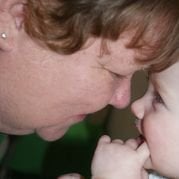
I Am Approved. Wow What A Great Friday
Vicki Loichinger posted a topic in Gastric Bypass Surgery Forums
Just got the call from Weight Loss Center. Insurance has approved my revision from band to RNY. Don't have a date yet. That call may come on Monday. But just knowing it is approved and it will happen is enough for today. I am feeling every emotion there is. Mostly good. I am ready for this. Thanks to all those who have been pulling for me. Your support is more than you will ever know. Hugs -

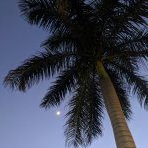
Revision to rny
dreamingofasleeve replied to dreamingofasleeve's topic in Revision Weight Loss Surgery Forums (NEW!)
Also how have you been feeling since revision? Rny scares me. But I think cancer scares me more [emoji20] Sent from my Pixel 3 XL using BariatricPal mobile app -
The big losers do not necessarily have more willpower or desire. The important difference between the big losers and the re-gainers may be how easy they find the journey to be. Surprisingly, you can control a large part of how easy or hard it is to lose weight. The weight loss journey is not just about changing your digestive system through surgery. It is also about changing your entire lifestyle to facilitate weight loss. Weight Loss Surgery is a Weight Loss Tool, Not a Cure Weight loss surgery is a tool. It can make you less hungry by reducing the size of your stomach by inserting a band around your stomach (Lap-band), removing the majority of your stomach pouch (vertical sleeve gastrectomy) or folding or stapling away the majority of your stomach pouch (gastric bypass, duodenal switch, and sleeve plication). The vertical sleeve gastrectomy reduces hunger by reducing the amount of ghrelin, a hunger hormone, that your stomach produces. The gastric bypass and duodenal switch reduce nutrient absorption. All of these surgeries can help you eat less and lose weight, but none of these surgeries are fail-proof. You can “cheat” by eating high-calorie foods, drinking high-calorie beverages, drinking beverages while you eat solid foods, and eating without measuring your portions. Successful weight loss requires good choices on your part, and making good choices is easier if you focus on your entire lifestyle, not just the part of your digestive system that was changed with surgery. The Influence of Your Surroundings on Your Weight Think about this scenario. You leave home without breakfast and order a muffin and ice coffee at the drive-through on your way to work. You grab a doughnut at your morning meeting, and go out for lunch with your friends. You order the lunch special with a salad, breadstick, fettuccine alfredo and cheesecake. You nibble on some chocolates from your secretary’s desk as you make your way to the vending machine for a soda in the afternoon. You pick up a pizza on your way home because you know that there is nothing else for dinner. Now compare it to this second scenario. You wake up early to meet your friend for a walk before you get home for a breakfast of scrambled egg whites and spinach. You drive to work and have yogurt and some fruit at your morning meeting. Lunch with your coworkers consists of a green salad with canned tuna, and you have a hard-boiled egg for your afternoon snack. You are able to get dinner on the table quickly when you get home because you only need to defrost the meals that you prepared earlier in the week. Which scenario do you think you can help you lose weight? The second one, of course. So why not make it a reality? Do Your Surroundings Encourage Weight Loss or Weight Gain? You have battled your weight for years, if not for your entire life before weight loss surgery. In all likelihood, your environment was set up for you to eat. Take a good, hard look at your environment. Is it more like the first scenario or the second one described above? You have the ability to make it more like the second one. Notice the following items from the two scenarios. Exercise was automatic in the second one because you planned to meet a friend – so you couldn’t back out. Preparing your dinners ahead of time meant that you could eat quickly without going to a fast food restaurant. Packing your own snacks meant that you did not have to eat a doughnut in your morning meeting or chocolates in the afternoon. Make the “Right” Choice Automatic The fewer tough choices you have, the less likely you are to make poor decisions. Set up your environment so that the healthier actions are easier. To make healthy eating easier: Prepare plenty of meals ahead of time so that you always have a ready-to-eat, healthy option to prevent you from opting for take-out. Throw away the take-out menus that you used to store in the kitchen. The extra time it takes you to look up the phone numbers and menus online may be enough to let you come to your sense and realize that you don’t want fast food. Keep your kitchen stocked with all kinds of healthy foods, so that no matter your craving, you have a healthy answer. Do not keep unhealthy foods at home. If they are not there, you cannot eat them. Make sure that the healthy option is the default option. For example, measure your cheese and cut and wash fruits and vegetables ahead of time so that it is easier to snack on them than on cookies. Also consider these ideas: Meet your friends for walks or shopping trips instead of for meals at restaurants. Park your car a few blocks away from work so that you have no choice but to walk those few blocks again at the end of the day as you leave work. Do not drive past drive-thrus if they are too tempting. Also, do not keep money in the car, and consider removing your car’s cup holders so that eating in the car is no longer an option. All weight loss surgery patients have their own struggles. Far from being wimpy, removing these obstacles rather than fighting them is the best way to overcome them. The weight loss journey path will always have speed bumps and potholes, but it will be a lot smoother if you set up your lifestyle to promote better choices all day.
-
Veggestyle, I think your doctor was reacting out of ignorance of the band. She is thinking that you're considering RNY, which indeed has significant risks long term. The pouch-stretching she talks about doesn't happen in the same way with the band, and it's by no means a "drastic" procedure inappropriate for "someone so young." Is she aware that the band can be removed with virtually no ill consequences if there are problems? This is not the case with RNY. My doctor was similarly concerned when I first broached the subject with her four years ago. Though I wasn't young I was healthy, and she felt I shouldn't take the risks inherent in bypass surgery. I agree! I told her about the lap-band and she's changed her thinking now, recommending it to other patients struggling with morbid obesity. Give your doctor the patient handbook from Inamed. See if she still feels the same way.
-


anyone have a flipped port?
Guest replied to cookienay's topic in POST-Operation Weight Loss Surgery Q&A
You're not dumb...I asked myself and my surgeon that after mine flipped. When he got in there to correct it he said one of the stitches had come undone, the other was still attached (he puts two stitches in?!)...anyway, he told me he put 4-5 in on my revision. I don't know if he just didn't stitch it right or what went wrong - he couldn't tell me. I'm just glad it is fixed! -


new, excited, nervous and not very good on online stuff!
RestlessMonkey replied to elcee's topic in Tell Your Weight Loss Surgery Story
Ok then ignore it! I mean, obviously it works. In fact, during my seminar, the statistics my surgeon quoted showed Aussies to have even BETTER results that those we have here in the USA, and 3 years out losses are equal to, or better than, bypass patients. So ignore that negative mumbo jumbo. The band is just a tool and if you use it properly it will do wonders. If you don't use it, it won't. Just like a hammer...it just lies there unless you pick it up, grab a nail, and wham away! :tongue_smilie: Welcome and good luck to you! -
Hi Everyone I am new here - I have been reading alot of the posts and I am so pleased to hear all the wonderful results everyone is having. I am having my lapband surgery done at kaiser in freemont - are there any other banders whom have had there bands from kaiser? I'm really really nervous, part of me thinks I can still do this by myself but then the other part is like "who you kidding." I have not seen many banders alot of the people that I work with or know have had the gastric bypass and are discouraging me from having the band, so I'm glad to read all the wonderful stories of success and if there are any other Kaiser patients, please do share your experience. :rolleyes2:

